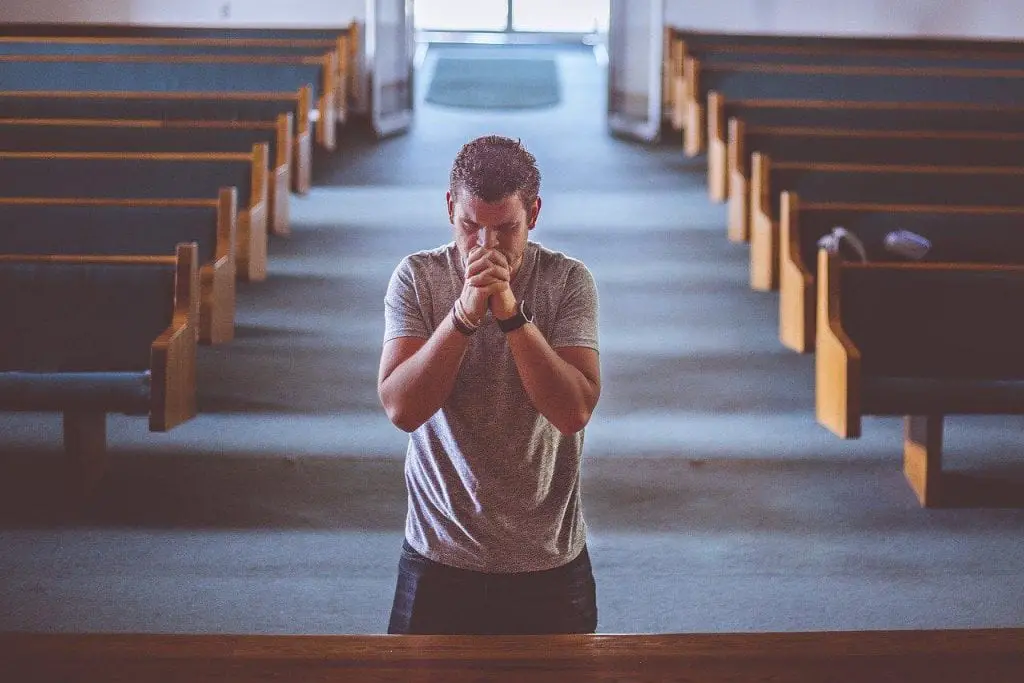
Religion has multiple definitions and interpretations but generally refers to an organized collection of views, beliefs, cultural systems and practices. These are the ones that are considered to be sacred, holy, absolute, divine, spiritual or worthy of reverence. Religion is also regarded as the pathway to handle the ultimate concerns of life and what happens after death. In many traditions or cultures, religion is the attitude toward spirits, deities or gods. Religious texts, in many cultures, have scriptural status and believers or followers perform or take part in contemplative or devotional practices such as worship, rituals, meditation and prayer.
Why do you need religion?
For many people, religion plays a central part in defining their identities and daily lives. Many others are also able to lead happy lives without following a particular religion. Before you start the process of choosing your religion, it is worthwhile to explore why you need a religion in the first place. There are many theories and beliefs that surround the origin of different religions. One such idea proposes that as humans evolved, they realized the need to encourage tolerance and cooperation and religion emerged as a cultural adaptation to such challenges. Psychologists believe that religion can help fill our basic need to find meaning and purpose in life, while supporting social organization. Some researchers point out that people have a natural tendency to believe in the supernatural and even 3-year-old children naturally link immortality and supernatural abilities to “God,” even when they have not been taught about God or to believe in God.
Each individual, however, may have unique reasons for adopting a particular religion. Before selecting a religion, examine why you need it and how it can help you achieve your life’s goals or purpose.
Which religion is right for you?

Before you seriously start to study and evaluate specific religions, taking a moment to reflect on your own beliefs, attitude and spiritual inclination is the first step. The most important factor in the quest for a religion is your own beliefs. Once you know what your heart wants and what your core values and principles are, you will find it easy to narrow down your options.
Write down and make a list of beliefs and values that come to your mind. No two individuals are alike and your set of values may be entirely different from another’s. You may also have been brought up to believe in a particular religion or raised in certain cultures, which can make it difficult for you to avoid the conditioning that you have received. However, as an adult, you now have full control over your philosophical journey and can choose the path that you want to take.
Writing down the views, values and beliefs, and even the disjointed ideas that you may have regarding religion in general and specific religions, can help you get a clear overview of your thought process. You can perhaps then prioritize the values by picking out the most important, non-negotiable ones out of the list.
Where do you fit?
Once you have clarity regarding your spiritual constitution, you will have a better idea of which religion is the best fit for you.
The best thing is, you can talk to the church or temple officials without having to be a true believer. If you want to know more about Christianity, for instance, you can try Parkway Fellowship which allows you to express your thoughts without being a believer. Most other relgions including Buddhism, Hinduism, Judaism or Islam have communities and forums that can give you more information on the religion and its traditions.
Visit religious centers/places of worship
One of the effective ways to decide upon a religion is to visit different places of worship and religious buildings. Visiting churches, temples, synagogues or monasteries is an excellent way of exploring various religions. You can step in, look around, read materials available in these places of worship and maybe even find out more about the religion from the concerned authorities or religious leaders.

If you are unsure about whether the place of worship allows visitors, contact the religious leaders in the community in advance to find out if visitors are allowed. Most religious leaders are happy to know that people are interested in their religion and typically provide a positive response.
Visiting during a holy service, special prayers or worship is also a great idea to experience the vibes first hand. If you are looking for that special moment, a spark, a sign or a spiritual vibe, chances are higher that you might find just what you want in the church, temple or other places of worship.
Many people feel good vibes in a place of worship. In fact, in certain Asian regions, temples were built on areas that had ‘positive energy.’ Scientific studies corroborate the fact that it is possible for us to pick up positive vibes in a particular environment because we subconsciously perceive the positive ‘chemosignals’ in that location.
Even if you don’t feel any kind of vibe, visiting a religious place can help you observe human gatherings in places of worship, their beliefs and rituals.
You can also visit a Universitarian church that is open to people of differing faiths. This church does not require an individual to believe in any particular religion or faith and even an atheist can attend the Universitarian service as an observer.
When you visit these religious places, be respectful of regulations, rules, prayer times and dress codes. Before you choose a religion, it is important to also consider if the service or prayer timings fit into your schedule. Inconvenient timings can become a major obstacle in your philosophical journey if you don’t consider this factor.
Read religious material
Buddha said“Let the truth be your lamp.” While you set out to choose your religion and spiritual views, it is important to know and understand as much as you can about different religions to make an informed decision. The more you understand a religion’s founding principles, religious rituals or traditions and core values, the better your spiritual journey will be.
The first step to understanding the founding principles and core values of a religion is to read the sacred religious text and its explanation or translation. Religious texts are central to every religion’s teachings and convey spiritual truth, explain ways to connect with the divine, promote spiritual practices/experiences and foster communal identity.
Study the Bible, Bhagavad Gita, Quran, Talmud, the Tipitaka or any other sacred text of a religion that interests you thoroughly. Read them all the way through, understand the real meaning and their modern applications.
If you have questions related to the sacred texts, approach the concerned spiritual leaders to clarify your doubts. Most such leaders are well-versed in their practice and may be willing to address your questions.
Ask these religious practitioners to explain the pros and cons of the religion. You can also sense at this time whether their beliefs align with yours and if they would be welcoming of newcomers. Some of the questions you can ask to get insights into the religion are:
- Why should someone like me follow this religion?
- How does your religion apply to the modern day lifestyle?
- How does your religion respond to the present day social problems?
- What happens after a person dies?
- What are the day to day traditions and rituals involved in this practice?
Observe if the community members are evangelizing (explaining the positive aspects) or proselytizing (trying to brainwash you into following their religion).
Do the values align?
The basic tenet of all religions is faith and unless you are sure you share your core beliefs with a particular religion or religious group, it is not possible to develop faith. Once you delve deep into the religious texts and approach the community leaders to clear your doubts, you will have a clear idea of what core values, traditions and principles a particular religion has.
The next step is to evaluate if these views align with yours.Religions have infinite interpretations, followers, interpretations, and applications. However, each religion has a set of specific acts or principles that are commonly accepted. If a particular cause or belief is important to you that you cannot compromise on, look for a religion that aligns closely with these beliefs. Determine if your stance on issues such as the ones mentioned below matches with the religious group’s views:
- Sexual issues including abstinence, celibacy, birth control and abortion
- War, peace and love towards fellow man
- Acceptance and tolerance of other religions
- Traditions/rituals and practices – such as wearing a veil (burqa), frequency of church attendance or meditation.
While adhering to the core principles and tenets of the religion that you adopt is important, merely adhering to all of these is not the only requisite to your spiritual growth. Spiritual growth is instead an ongoing process of getting rid of unreal and wrong thoughts, concepts, ideas and thoughts and becoming more aware and conscious of your inner self. Spiritual growth is also not about escaping from responsibilities or becoming impractical. It is about becoming more practical, positive and mentally strong. Religion is a channel to attain spiritual growth that helps you gain inner strength and stay composed and balanced in face of trying circumstances and other external influences.
